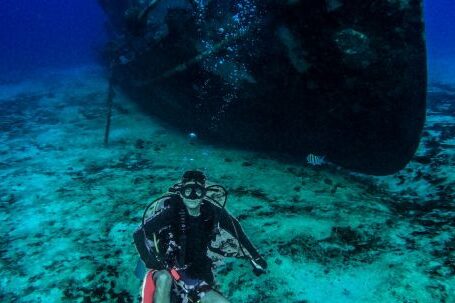Diving is a thrilling and exhilarating activity that allows us to explore the depths of the ocean. However, it is important to remember that diving can also be dangerous if proper safety precautions are not taken. In order to prevent diving accidents and ensure a safe diving experience, it is crucial to follow these important guidelines.
Undergo Proper Training and Certification
The first step to ensuring a safe diving experience is to undergo proper training and obtain certification. Diving is a technical activity that requires knowledge and skills in order to be performed safely. Enroll in a reputable diving school and complete the necessary courses to become a certified diver. This will provide you with the necessary knowledge and skills to handle different diving situations and emergencies.
Perform Regular Equipment Checks
Before every dive, it is essential to perform thorough equipment checks to ensure that everything is in proper working condition. Inspect your diving gear, including your mask, regulator, BCD (buoyancy control device), and dive computer. Check for any signs of damage or malfunction and have them repaired or replaced if necessary. Additionally, ensure that your tanks are filled with the appropriate gas mixture and that your diving suit is fitted properly.
Plan Dives Carefully and Stick to Your Plan
Proper dive planning is crucial to prevent accidents and ensure a safe dive. Before entering the water, discuss your dive plan with your buddy or dive master. Take into consideration factors such as depth, bottom time, currents, and weather conditions. Always set a maximum depth and bottom time and stick to them to avoid decompression sickness or other diving-related injuries. Remember, it is better to be conservative and err on the side of caution.
Maintain Proper Buoyancy Control
Maintaining proper buoyancy control is key to preventing accidents while diving. Practice controlling your buoyancy through proper weighting and finning techniques. Avoid over-weighting yourself, as this can lead to difficulties in maintaining neutral buoyancy. Proper buoyancy control not only prevents accidents but also helps protect marine life and preserve the underwater environment.
Buddy System: Never Dive Alone
One of the golden rules of diving is to never dive alone. Always dive with a buddy, as this provides an extra layer of safety and support. Maintain close contact with your buddy throughout the dive and establish clear communication signals. Remember, your buddy is your lifeline in case of any emergencies or problems that may arise during the dive.
Be Mindful of Your Limits
Knowing your limits and diving within them is crucial for your safety. Do not attempt dives that are beyond your skill level or comfort zone. As you gain more experience and confidence, you can gradually push your limits, but always do so in a controlled and safe manner. Listen to your body and be aware of any signs of fatigue, discomfort, or panic. If at any point you feel unsafe or unsure, abort the dive.
Regularly Maintain and Service Your Equipment
Proper equipment maintenance is essential for safe diving. After each dive, rinse your gear with fresh water and store it in a cool, dry place. Have your equipment serviced regularly by a qualified technician to ensure that it remains in optimum condition. This includes regulator servicing, tank inspections, and BCD maintenance.
Conclusion: Dive Safe, Dive Smart
Diving accidents can be prevented by following these important guidelines. Remember to undergo proper training, maintain and check your equipment regularly, plan dives carefully, dive with a buddy, be mindful of your limits, and practice good buoyancy control. By prioritizing safety and taking these precautions, you can enjoy the wonders of the underwater world while minimizing the risks associated with diving. Dive safe, dive smart!





